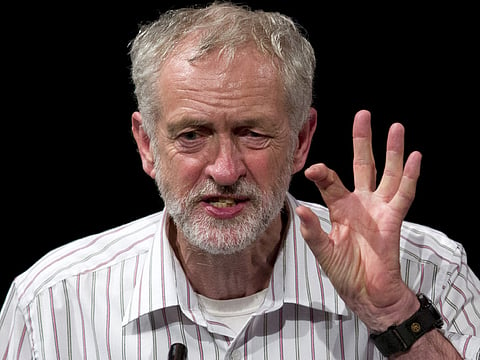Labour should enjoy its spell in the wilderness
Corbyn will offer something distinct from the Tories. It’s not like he — or any of the candidates — is going to be prime minister

I’ll be frank, I have not been following the “battle” for the leadership of Britain’s Labour Party that closely. There are two reasons for this. First, as the UK shadow education secretary, Tristram Hunt, pointed out last week, it has been desperately dull. But more importantly, it is largely irrelevant. There is no earthly chance that any of the four candidates is going to be prime minister. Nothing, of course, is absolutely certain in politics. War or a collision with Pluto would certainly be a game-changer, as might Tory implosion over Europe. But the landscape for Labour looks more forbidding than it has since the party’s inception.
Winning in 2020, perhaps even in the 2020s at all, looks all but impossible. The loss of Scotland changes everything: Labour can no longer claim to be Britain’s only national party and the electoral arithmetic becomes nightmarish. With the Liberal Democrats electing a leader who will take the party back to where they were before the Orange Book aberration, we now have a host of parties vying to occupy the left of British politics — Labour, the Lib Dems, the SNP, Plaid Cymru, the Greens, even Ukip, in the north of England at least, where it will present itself as a left-leaning nationalist party.
It is now time for Labour to jump into its tardis and transmogrify The Tories, by buttering up pensioners, protecting the affluent and securing 40 per cent of the vote, can more or less rule in perpetuity, safe in the knowledge that their opponents will never be able to construct an alliance to challenge them. As in the 2015 election, the only possible contender is a Labour-SNP parliamentary pact, but that seems to be so terrifying for English voters that the very prospect means it will never come to pass.
In these depressing circumstances — and I write as a tribal Labour supporter who at the age of 17 was campaign manager for the Labour candidate in the school election — it really doesn’t much matter who Labour choose as leader, and all the breast-beating over the awful possibility that Labour members might choose Jeremy Corbyn seems misplaced.
Labour are going to be in the wilderness for another decade, probably longer, and at least he has the right sort of biblical look and fiery rhetoric to lead us there. Andy Burnham and Yvette Cooper are dull, part of the decade of failure that brought Labour to this sorry predicament. Liz Kendall is also largely uninspired, judging by her platitudinous Twitter feed. Also, if she was elected we would revert to the odd position we had when Tony Blair and Charles Kennedy were in charge, of Labour being a centre-right party and the Lib Dems staking out their territory on the left.
Offer a message
At least Corbyn will get the juices of the members flowing, speak a language that the marginalised groups lost to Labour can understand, and offer a message that is distinct from the uber-liberalism of George Osborne. With Corbyn, Labour can have some fun in the wilderness and will no doubt still poll 30 per cent or thereabouts at the next general election. Farron, after all, is no Gladstone and even Michael Foot couldn’t get the party below 28 per cent.
The real truth is that, whoever wins the Labour leadership, the task of beating the Tories is hopeless unless there is a repositioning of the parties on the left. This was the fact that Ed Miliband’s five wasted years managed to dodge: Labour isn’t the solution to the divisions on the left; it is the problem. It is no longer clear what it stands for: the collapse of industrial Britain has torn it from its moorings; the wild oscillations from Blairism to Milibandism have left the public confused. Political parties don’t last forever. The Tories might like to think they are the exception, but even their turn will come.
The Whigs carried the Great Reform Act of 1832 and were extinct a couple of decades later, or rather they had transmogrified into something else. It is now time for Labour to jump into its tardis and transmogrify too. It could start by changing its name to the Democratic party, forming an electoral pact with the Liberals and the Greens, and committing itself to electoral reform — some form of PR, scrapping the Lords, full federalism (in a bid to stave off separation), much greater local democracy — as soon as this new progressive alliance wins power.
This will be the constitutional revolution that paves the way for a social and economic one. Some of my fellow Labour tribalists may be horrified by my conclusion, but the only way Labour can win again is by abolishing itself, reaching out to the other progressive parties in the UK and creating the sense of excitement and desire for change that swept through Scotland during the referendum and is now giving the SNP record poll ratings. So let’s not fear Jeremy Corbyn taking us into the wilderness, because only out there in the wilderness will it dawn on the Labour party that the time has come to tear everything up and start again.
— Guardian News & Media Ltd


